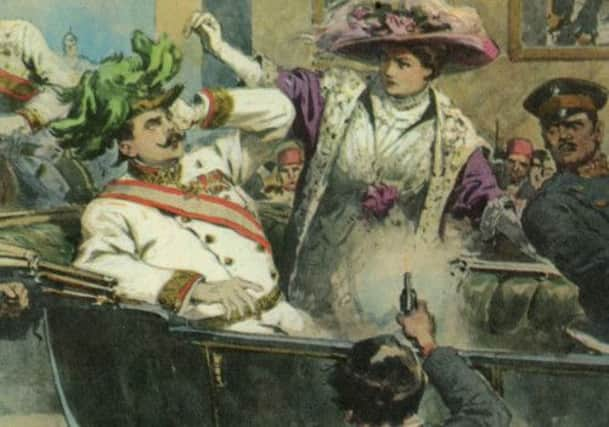Book review: The War That Ended Peace


The War That Ended Peace
Margaret MacMillan
Profile, £25
Now she turns her considerable talents to the origins of a conflict that, in her words, “changed the old international order for ever”.
At first the consensus was that all protagonists bore some responsibility. “The nations,” wrote David Lloyd George, “slithered over the brink… without any trace of apprehension.”
Advertisement
Hide AdWith the publication in 1961 of Fritz Fischer’s groundbreaking Germany’s Aims In The First World War, the chief culprits were identified as the Kaiser and his chief military advisers. More recently the spotlight has shifted to Austria-Hungary, Russia and Serbia, while Chris Clark’s The Sleepwalkers (2012) returned to the Lloyd George thesis. “There is,” writes Clark, “no smoking gun… or, rather, there is one in the hands of every major character.”
The chief value of MacMillan’s elegant book is that it provides the long view. Noting that the key decisions were made by a small group of men, she tries to explain why they acted as they did, going back to 1900 (and in some cases earlier) to look at the forces that had shaped them. She concentrates, in particular, on disputes over Morocco, Bosnia and the Balkans in general that scarred European diplomatic relations from 1905 onwards.
What is striking about her analysis of these crises is how close Europe came to a general war on numerous occasions before 1914. Each time one or other of the two armed camps – the Central Powers of Austria-Hungary and Germany, and the Entente of Russia, France and (loosely) Britain – drew back at the last minute but the consequent humiliation was not forgotten. This produced a determination on both sides not to back down in the future; and it also accustomed the rulers and their peoples to the idea of war and gave some a conviction that it was better to fight sooner rather than later.
Chief among the latter group – as MacMillan acknowledges – were the Austro-Hungarians, who felt the longer they waited, the more the military balance would tip against them. So when the Sarajevo assassinations provided Austria with the opportunity to destroy Serbia, it took it.
MacMillan provides nuanced pen portraits of the leading players in the story, and much compelling evidence, but in her conclusion ducks the issue of blame. We can forgive this last-minute loss of nerve. Would that Europe’s leaders in 1914 had been similarly afflicted – because the previous 600 pages are as fine an assessment of the reason peace failed as any yet written. A general war was not inevitable; the decision-makers had choices. They just took the wrong ones.